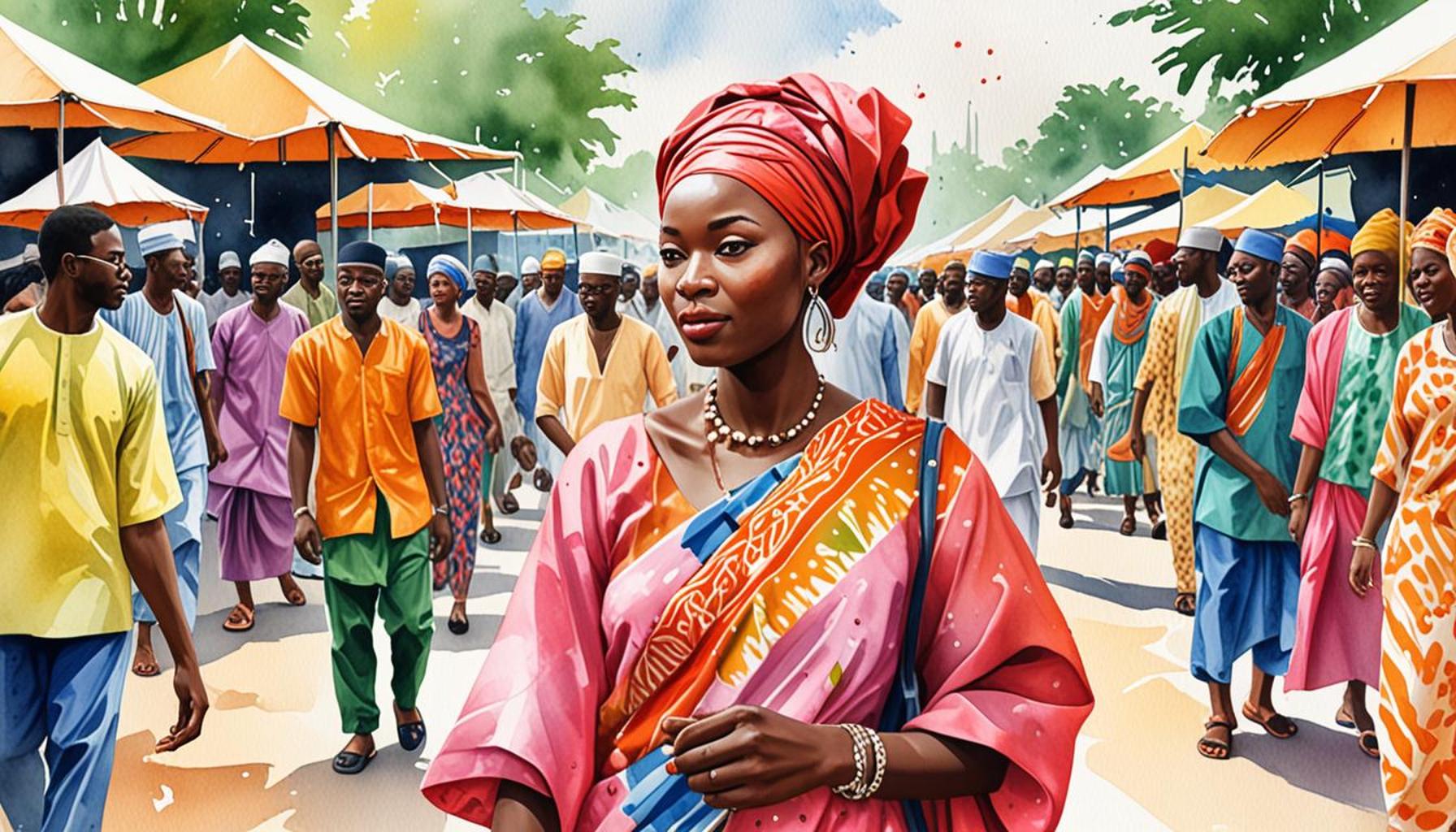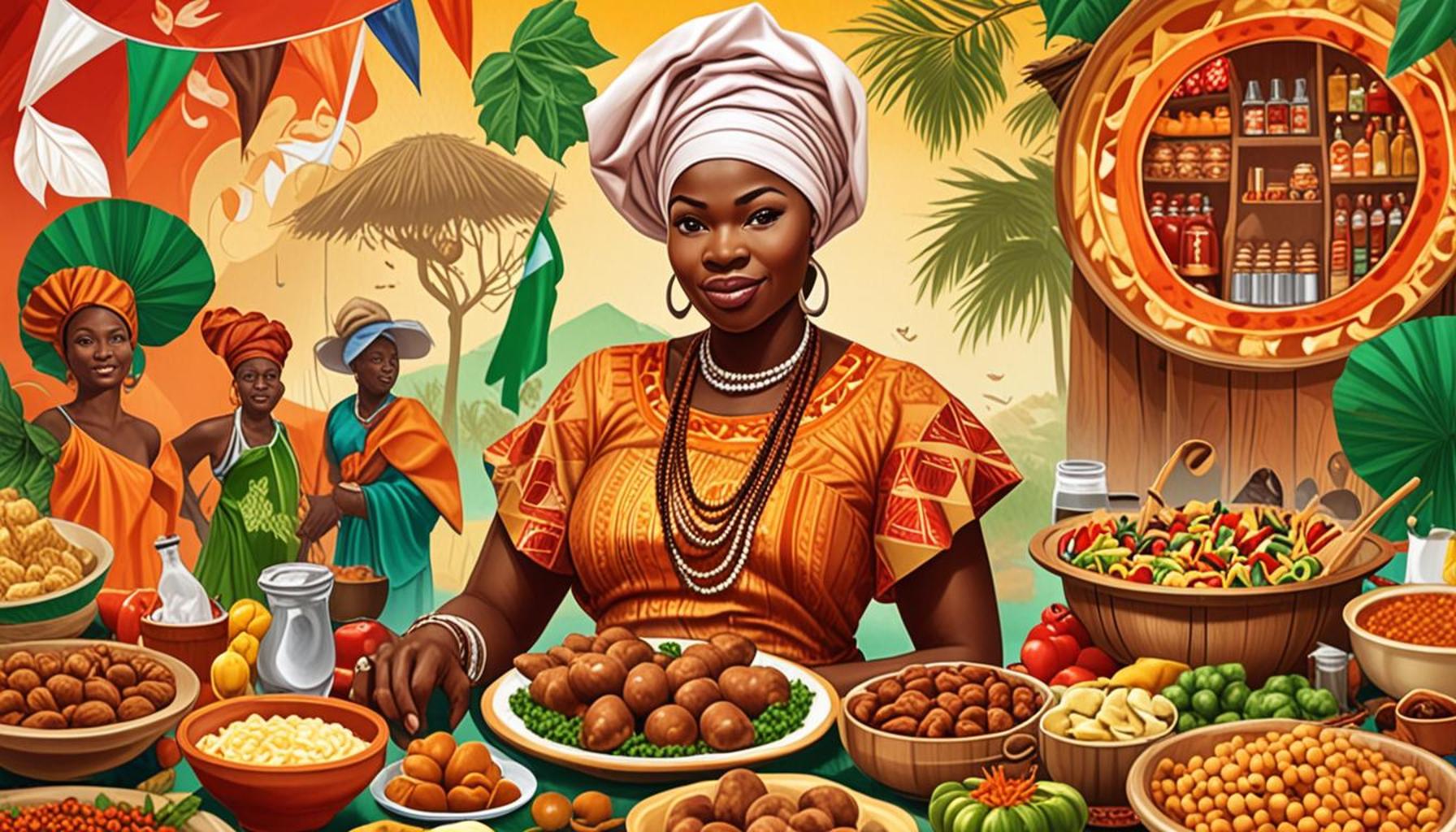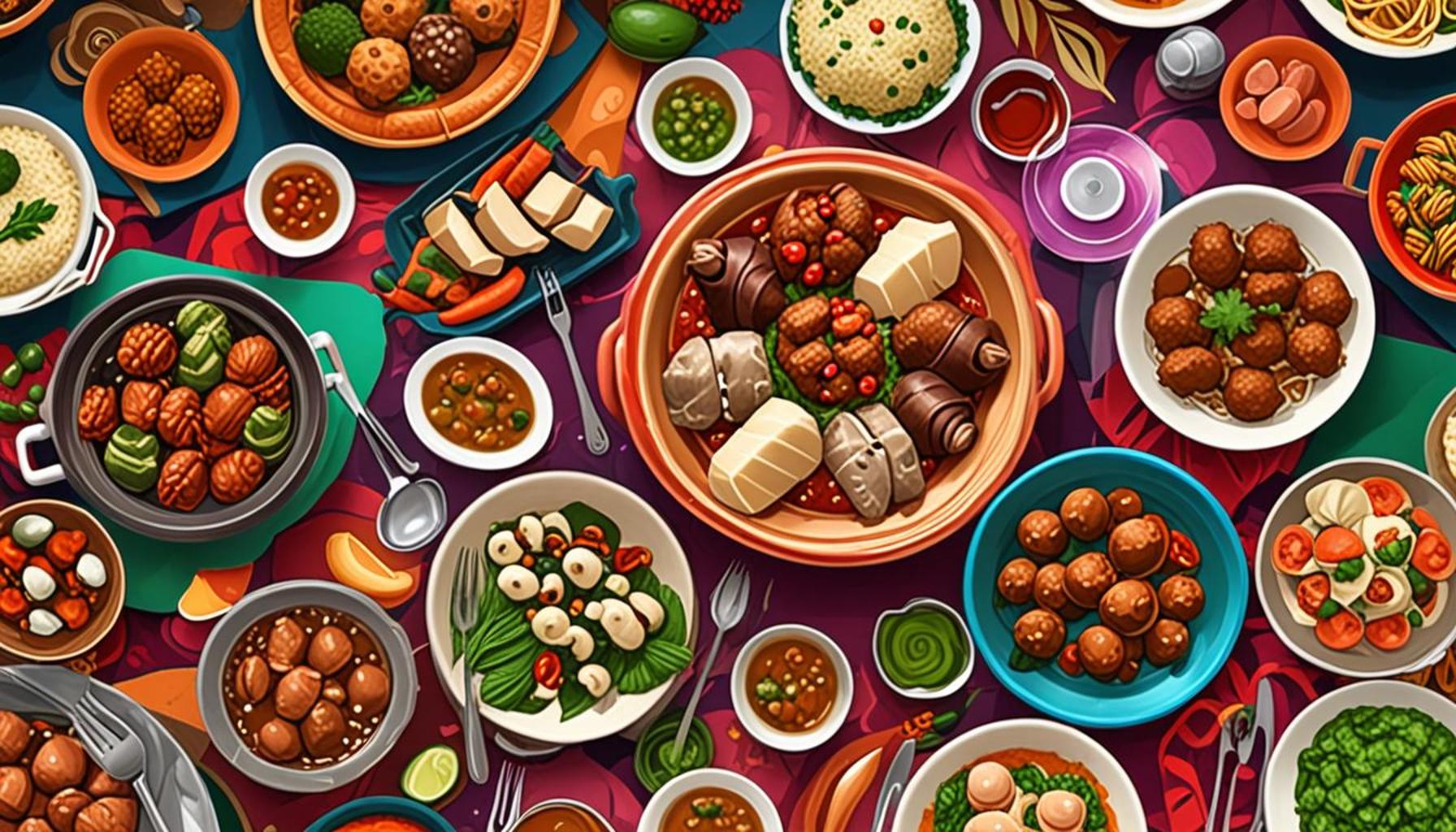The Art of Nigerian Craftsmanship: An Itinerary Through Local Markets and Workshops

The Heart of Nigeria’s Artistry
Nigeria stands as a beacon of creativity, where traditions are passed down through generations and skills are honed to perfection. Every village and urban center showcases the incredible talent of its local craftsmen, making this nation a tapestry of artistic expression. The vibrancy of Nigerian craftsmanship is perhaps best experienced in the bustling local markets and intimate workshops, where artisans unveil their masterpieces, capturing the essence of culture and heritage.
As we venture into the realms of Nigerian artistry, we will uncover various forms of craftsmanship, each with unique techniques and stories:
- Wood carving: In regions like Ekiti and Ogun, artisans engage in the age-old practice of wood carving, transforming simple and raw timber into beautiful sculptures, masks, and functional furniture. The intricate patterns and designs often tell stories of ancestry and spirituality, making each piece not just an object, but a representation of history and tradition.
- Pottery: The art of pottery in Nigeria is rich and diverse, with distinct styles emerging from different ethnic groups. For instance, the Ubiaro pottery of the Idoma people employs ancient techniques passed down through generations, creating both functional wares and decorative pieces that reflect community narratives. Visitors to studios in Abuja can witness firsthand the meticulous process of handcrafting pots, vases, and traditional ceremonial items.
- Textiles: Nigeria’s textile industry is renowned for its vibrant patterns and intricate designs. Fabrics like adire, created through a tie-dye technique native to the Yoruba people, and ankara, a brightly patterned cotton fabric, capture the essence of Nigerian design. Local tailors and seamstresses showcase their artistry at markets like Balogun Market in Lagos, where shoppers can explore a kaleidoscope of colors and styles, perfect for ceremonies or everyday wear.
Our journey through Nigeria’s artistic landscape will lead you to iconic markets such as Lekki Artisan Market and Oniru Market, famed for their lively atmosphere and eclectic offerings. As you interact with the artisans, you’ll not only see their craftsmanship but also hear their stories, embodying a sense of pride in their work. Each piece is imbued with cultural significance—be it a hand-painted calabash, a carved wooden fish, or a stunning textile that tells a story of heritage.
This exploration promises to be a captivating experience that goes beyond mere observation. By appreciating the rich cultural narratives interwoven in each handmade item, you gain insight into Nigeria’s legacy of craftsmanship. Join us on this exciting journey to uncover and celebrate the diverse artistry that is essential to Nigeria’s identity, and take with you not just souvenirs but stories that resonate across generations.
LEARN MORE: This related article may interest you
The Artisan’s Touch: Discovering Wood Carving in Nigeria
Among the myriad forms of craftsmanship that flourish across Nigeria, wood carving stands out as a profound testament to the nation’s artistic heritage. In communities nestled within regions like Ekiti and Ogun, master carvers work diligently to transform locally sourced timber into breathtaking sculptures, ceremonial masks, and daily-use furniture. These artisans possess a deep connection to their materials, often allowing the wood’s natural grain to guide their artistic journey.
Each piece created is not merely an item but an expression of cultural narrative, with intricate patterns and designs woven into the wood that echo tales of ancestry, spirituality, and communal values. One can find these artisans diligently honing their craft in workshops, where the air is filled with the scent of fresh sawdust and the rhythmic sound of chisels meeting wood. Visitors to these workshops can witness the labor-intensive process firsthand, gaining not only souvenirs but also a deeper understanding of the stories encapsulated in each creation.
- Artistic Techniques: Many wood carvers employ traditional techniques passed down through generations. Their tools may seem simple, yet the skills they possess are refined and complex, allowing them to create intricate details that breathe life into their artworks.
- Cultural Significance: Each carving often holds deep cultural significance. From masks used in traditional rituals to sculptures depicting folklore, these artworks are vessels of history that link the past with the present.
- Integration in Daily Life: Beyond artistic expression, wood carvings often serve practical purposes in daily life—be it functional furniture or decorative items that enhance the beauty of homes.
As we continue our adventure through the heart of Nigeria’s craftsmanship, we turn our attention to the bustling markets that serve as the lifeblood of local artisans. Iconic spaces such as the Lekki Artisan Market and Oniru Market in Lagos not only showcase the diverse art forms found throughout the nation but also provide a platform for artisans to connect with both locals and tourists. These markets are teeming with life and vibrancy, where the sounds of haggling echo and colors of various art pieces beckon potential buyers.
In these settings, visitors can immerse themselves in a cultural experience like no other. Engaging with craftsmen, one can learn about their inspirations, challenges, and the meticulous processes behind their work. From eye-catching wood carvings to vibrant textiles, the markets become portals to Nigeria’s rich artisan landscape. The stories shared by these artisans encapsulate their passion and pride, enriching every purchase made and fostering a profound appreciation for their craft.
During this exploration of Nigerian craftsmanship, it becomes evident that each piece is imbued with cultural significance and artisanal skill. To witness this artistry is to connect with a heritage that spans centuries and binds communities together, reminding us that these creations are much more than mere commodities—they are living narratives waiting to be uncovered.
The vibrant tapestry of Nigeria’s artisanal legacy is a testament to the rich cultural heritage that underpins the country. As you meander through local markets and workshops, the palpable energy of craftsmanship comes alive. Here, artisans not only showcase their wares but weave stories through each intricate piece they create. Whether it’s the mesmerizing Adire textiles from the southwestern region or the meticulous wood carvings from the north, every artifact holds the essence of age-old techniques passed down through generations.
Exploring the streets of Lagos or the bustling markets of Kano, you will encounter an array of craftsmen—potters spinning clay into functional art, jewelers crafting one-of-a-kind pieces using locally sourced materials, and weavers whose vibrant fabrics tell the story of their communities. Engaging with these artisans provides insight into their meticulous techniques and creative processes, making each purchase not just a transaction but a connection to Nigeria’s pursuit of beauty and cultural identity.
Moreover, the workshops serve as a learning hub where visitors can participate in hands-on sessions, gaining proficiency in various crafts. Immerse yourself in pottery classes or textile dyeing workshops, where you not only learn the techniques but also experience the heritage that crafts provide. These interactive experiences amplify your understanding of Nigerian craftsmanship and allow you to savor the profound connection between art and culture.
Join this exciting journey to rediscover traditional craftsmanship, and let each interaction enhance your appreciation for the art and stories behind Nigeria’s most cherished creations. With each visit, you become part of a narrative that celebrates the artisans’ commitment to their craft—an indelible part of Nigeria’s evolving history.
| Category | Advantages |
|---|---|
| Artisan Interaction | Get firsthand knowledge and insights into ancient techniques and stories. |
| Cultural Experience | Engage in hands-on workshops to deepen your appreciation of Nigerian culture. |
As you explore the depths of Nigeria’s craftsmanship, you find not just art, but a vibrant culture that invites you to learn, appreciate, and participate. Your journey through local markets and workshops doesn’t just unveil unique pieces; it presents an opportunity to connect with the heart and soul of Nigeria.
CHECK OUT: Click here to explore more
Weaving Culture: The Story of Nigerian Textiles
As we journey further into the realm of craftsmanship, the artistry of Nigerian textiles emerges, rich in history and cultural significance. Textiles in Nigeria are not merely fabric; they are narratives woven through intricate patterns and vibrant hues that reflect the diverse ethnic identities thriving within the nation. From the elaborate Aso Oke of the Yorubas to the stunningly embroidered Tradicional Ugandan clothes of the North, each textile tells a story.
Markets like the Balogun Market in Lagos offer a sensory explosion where color and texture dance in harmony. Here, one can find rolls of beautifully dyed fabrics, including the stunning batiks and tie-dye patterns that define Nigerian textile artistry. The atmosphere is lively, with vendors proudly presenting their goods, showcasing their skills. Engaging with these sellers opens a window into their world, revealing long-standing traditions where techniques are passed down through generations.
- Technique and Craftsmanship: The weaving process is often meticulous and labor-intensive. Artisans use simple hand looms, and their craftsmanship reflects decades of heritage—an amalgamation of heritage techniques meeting contemporary designs.
- Cultural Identity: Textiles are deeply intertwined with cultural identity. Each ethnic group boasts distinctive fabric designs that are not only visually appealing but also interwoven with cultural meanings. For instance, the Adire fabric from southwestern Nigeria features traditional motifs symbolizing fertility, prosperity, and community.
- Functional and Decorative Purposes: In addition to traditional attire, these fabrics find their way into home décor, art pieces, and other functional creations, demonstrating the versatility of Nigerian textiles.
Exploring textile workshops provides an intimate glimpse into this craft. Artisans work with traditional methods, dyeing and weaving fabrics according to age-old practices that emphasize sustainability and local resource utilization. In these spaces, one can see the transformative power of creativity—how a simple piece of cloth can evolve into vibrant stories that adorn both homes and bodies.
Another noteworthy location is the National Museum of Unity in Enugu, where traditional textiles are celebrated not just as art pieces, but as important historical documents. Exhibits narrate tales of different communities and their attire, highlighting how clothing reflects social status, festivities, and cultural practices. Visitors can engage with guided tours that delve deeper into the symbolism behind various textile forms, further enriching their understanding of Nigeria’s artistic landscape.
Encouraging the next generation to appreciate and carry on this heritage is crucial. Workshops often include training sessions for young artisans, instilling skills that safeguard this age-old practice and ensure that traditions remain alive for future generations. Whether through learning traditional weaving techniques or participating in dyeing processes, these initiatives empower younger Nigerians to take pride in their cultural heritage.
From the vibrant colors to the intricate patterns, Nigerian textiles encapsulate the country’s artistic prowess. Each piece serves not only as a representation of personal identity but a reflection of the rich tapestry that is Nigeria itself. As markets bustle with activities and workshops ignite creativity, the allure of Nigerian textiles continues to captivate those who seek to experience this remarkable craftsmanship.
SEE ALSO: Click here to read another article
Conclusion
In conclusion, the journey through Nigerian craftsmanship unfolds a vibrant tapestry of culture, identity, and creativity. From the bustling stalls of local markets like Balogun Market to the serene atmosphere of textile workshops, the exploration of this artistry reveals not just beautiful pieces, but profound stories that shape Nigeria’s cultural landscape. Each craft—be it weaving textiles, sculpting wood, or forging metal—serves as a vital connection to the rich heritage and the skilled artisans who dedicate their lives to preserving these traditions.
The intricate designs and techniques showcase a fusion of age-old practices with modern interpretations, emphasizing sustainability and local resources. Importantly, as we encourage the younger generation to engage in these crafts, we pave the way for a revival of traditional skills that are crucial for cultural continuity. Visitors and locals alike will find that these handcrafted items bear witness to the societal values and histories encapsulated within each thread, carving out a unique identity that resonates beyond borders.
To truly appreciate the artistry of Nigerian craftsmanship, one must immerse themselves in this vibrant experience—exploring the markets, interacting with the artisans, and understanding the narratives behind their work. In doing so, we not only celebrate Nigeria’s artistic prowess but also foster a deeper appreciation for the diverse cultures that define the nation. As you embark on your own journey through these local markets and workshops, allow the stories of craftsmanship to inspire and ignite your passion for Nigeria’s rich legacy.


